Table of Contents
1. Introduction
2. Understanding the types of trailer tires
3. Current market trends in trailer tires
4. Key factors to consider when selecting trailer tires
5. Leading trailer tire models and their standout features
6. Conclusion
Introduction
Selecting ideal trailer tires is essential for companies in 2025 because it has an impact on safety and efficiency while also affecting operational expenses significantly. Top-notch trailer tires guarantee good performance in different terrains and weather conditions, which helps reduce downtime and minimize the chances of accidents. Thanks to the advancements in tire technology, today’s options provide improved durability and load capacity along with fuel efficiency, making them indispensable for the efficient transportation of goods. Investment in the right trailer tires is crucial not only for protecting valuable cargo but also for ensuring seamless operations and saving money in the long run.
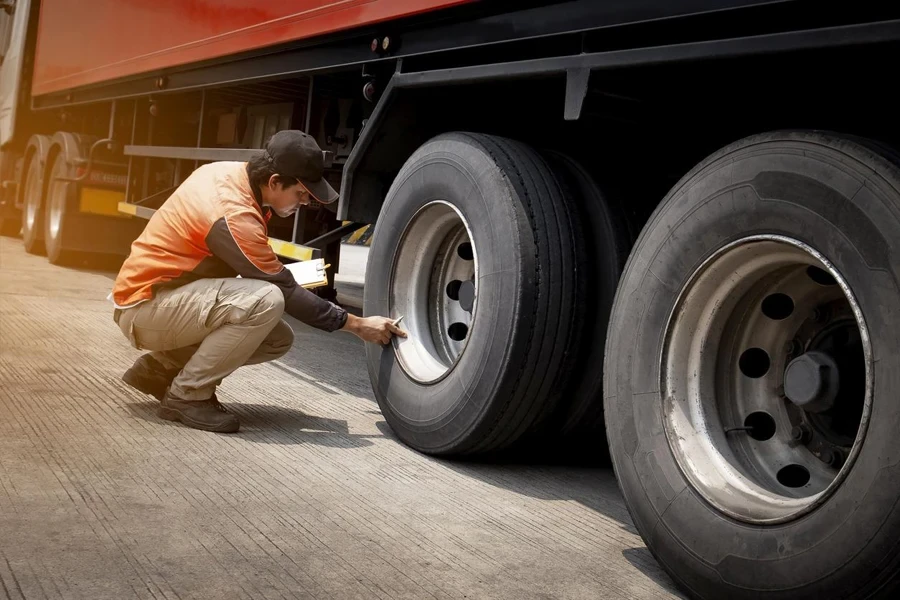
Understanding the types of trailer tires
In trailer settings, there are two main types of tires: bias ply and radial ply; each has traits that meet various requirements. Radial tires go at a 90-degree angle, making for a more flexible sidewall. This flexibility brings about advantages such as grip stability and even wear across the tread. Radial tires also excel at dispersing heat, which suits them well for long journeys and high-speed scenarios. The decreased accumulation of heat helps prolong their lifespan and enhance their fuel efficiency significantly, which are qualities that make them a top pick for trailers that often journey on highways.
In contrast, bias ply tires are made with nylon layers placed at varying angles, usually between 30 to 45 degrees, crisscrossing each other. This arrangement results in bias ply tires having a sidewall, lending them strength and longevity, which can be beneficial for carrying heavy loads and navigating rough terrain. Their durable build makes them less prone to punctures in landscapes, explaining their selection for agricultural trailers or construction sites. Bias ply tires tend to wear out quickly and consume more fuel compared to radials due to their shorter lifespan and higher rolling resistance.
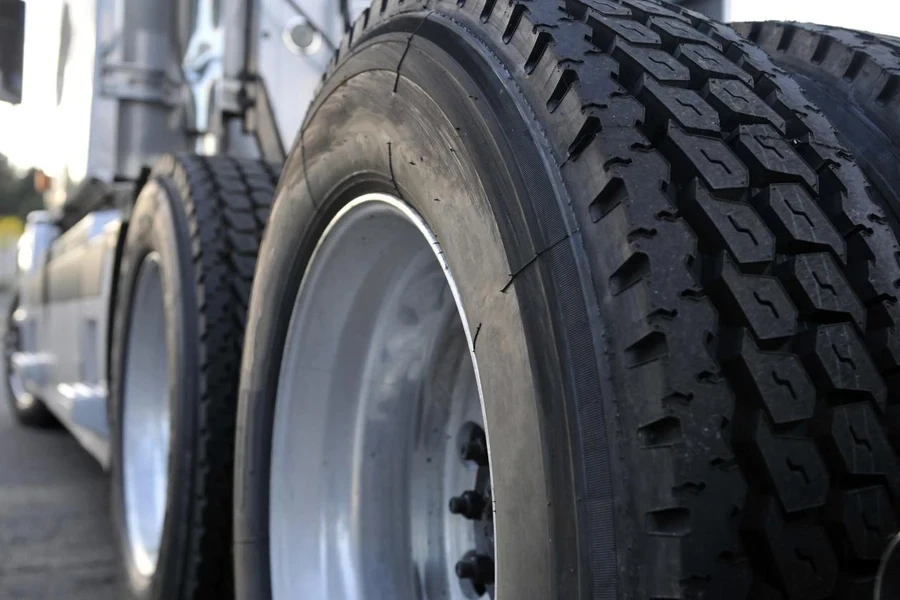
Current market trends in trailer tires
Growth in demand for durable and high-performance tires
The market for trailer tires in 2024 is experiencing expansion due to a surge in demand for lasting and high-quality options. The estimated global market size for trailer tires is expected to reach around $19 billion by the year 2030, with a growth rate of 5%. This increase is being propelled by the escalating transportation of goods and the increased utilization of trailers across industries like agriculture, construction, and transportation, where durable tires capable of carrying heavy loads over long terrains are essential. Top-notch tires are increasingly necessary to fulfill the challenging requirements of logistics and the rising desire for long-distance capabilities in both business and leisure vehicles.
Technological advancements in tire design
The progress in technology is significantly impacting the development of trailer tires nowadays. Recent innovations aim to improve the design of treads and decrease resistance while enhancing heat dispersion, resulting in fuel efficiency and a longer lifespan for the tires. Companies are now using advanced materials and unique design methods frequently to create tires with superior traction and durability. These modern tires also offer enhanced safety features, like improved resistance and effective distribution of weight loads.
Environmental considerations and sustainability
The importance of sustainability is gaining traction in the trailer tire industry as environmental rules become stricter and awareness of effects increases among customers and manufacturers alike. The shift towards manufacturing methods involves using eco-friendly materials and creating tires that last longer to decrease waste. Furthermore, there is a trend towards producing tires that are easier to recycle or retread, reducing the overall environmental impact of the industry.
Businesses are also focusing their efforts and resources on studying ways to decrease the impact of tire manufacturing by incorporating resources and improving production methods for better efficiency. This change not only supports sustainability objectives but also meets the needs of a consumer base that is growing more conscious of and worried about ecological effects.
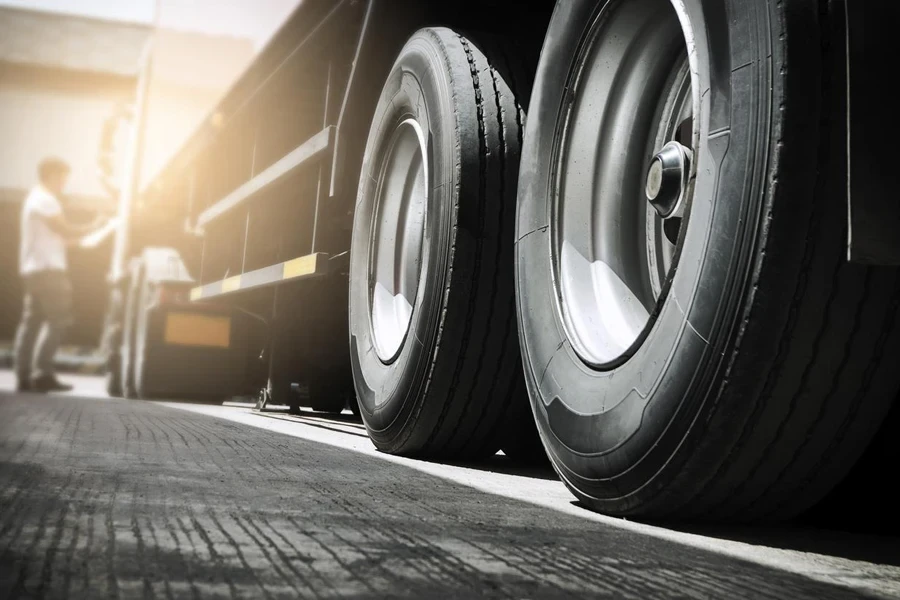
Key factors to consider when selecting trailer tires
Load Capacity and Tire Specifications
When you’re picking out trailer tires, it’s important to know about load capacity and tire specifications. Each tire comes with a load rating that shows the weight it can handle safely. This number needs to match or be higher than the Gross Vehicle Weight Rating (GVWR) of the trailer to prevent overloading issues that could lead to tire failure and put safety at risk. Don’t forget about speed ratings either; they tell you the speed a tire can handle when carrying a load. Choosing the ideal load and speed ratings guarantees that the tires will work dependably in towing situations and helps prevent blowouts while also prolonging the lifespan of the tires.
Durability and Longevity
The durability and lifespan of trailer tires play a key role in deciding which ones to choose for your trailer needs. The type of tire construction, be it radial or bias ply, impacts how well a tire can handle pressures and strains. Radial tires are recognized for their steel belt design, which helps in even heat dispersion and ensures tread life, making them perfect for highway journeys. On the other hand, bias ply tires come with sidewalls that enhance durability specifically for off-road terrain and heavy-duty tasks. Choosing tires with ply ratings can provide strength and are ideal for carrying heavy loads, which in turn improves their longevity. Opting for the appropriate tire type, depending on use cases, can boost efficiency and lessen the need for frequent replacements.
Climate and Terrain Suitability
The performance of tires can differ greatly depending on the weather and type of terrain they are used in. For example, aggressive treaded tires work best in muddy conditions, providing grip for off-road driving or in areas with heavy rainfall, whereas ribbed tread patterns are more suitable for dry paved roads, giving a smoother ride and better fuel economy. It is important to consider temperature variations as they can impact tire pressure and overall durability. It is also vital to choose tires that can withstand changes to ensure performance and safety while driving. When selecting tires for a trailer that improves stability and traction while enhancing efficiency, it’s important to take into account the vehicle’s usual operating conditions.
Maintenance Requirements and Safety Features
Maintaining your tires regularly and prioritizing safety features are crucial for extending tire lifespan and ensuring towing operations. It is vital to keep the proper tire pressure as low pressure can cause wear patterns and decrease fuel efficiency while also increasing the chances of tire blowouts. Contemporary trailer tires are commonly equipped with reinforced sidewalls to enhance stability and resistance against punctures and prevent accidents. Implementing tire pressure monitoring systems (TPMS) can offer notifications regarding tire conditions to prevent failures. It’s important to conduct checks for any indications of damage, like cracks or bulges, on your tires and to adhere to the suggested replacement schedule, which is usually every 3 to 4 years, to maintain safety and optimal performance.
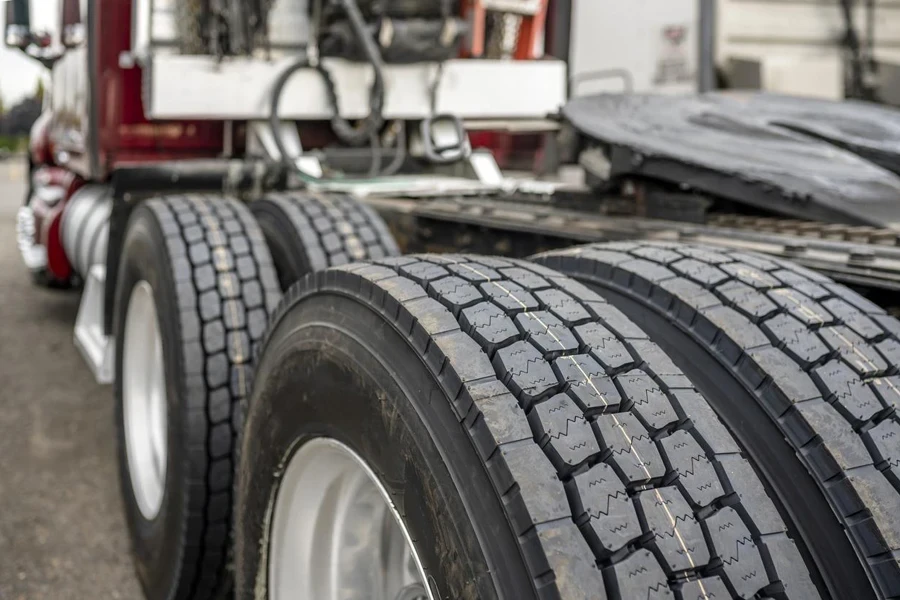
Leading trailer tire brands and their standout features
Maxxis
Maxxis is a standout in the trailer tire industry due to its emphasis on high-performing tires designed for highway driving and long journeys. They are recognized for their heat dispersion feature, which plays a big role in averting blowouts when towing over extended distances. Maxxis tires provide stability and grip on dry as well as wet roads, making them dependable across different weather scenarios. Their cutting-edge tire patterns and top-notch rubber materials ensure lasting performance and reliability. They are ideal for individuals who regularly haul trailers or take extended trips with travel trailers in tow. Furthermore, Maxxis tires commonly incorporate UV components to boost their longevity by shielding them from sun-induced wear and tear.
Goodyear
Goodyear stands out as a top-notch brand recognized for its robust tire design and ability to handle heavy loads effectively; this makes their offerings perfect for tough tasks requiring strength and endurance. Goodyear trailer tires are especially well suited for business purposes where trailers are frequently heavily loaded and travel long distances. These tires offer grip and steadiness crucial for ensuring safety in challenging situations. Goodyears focuses on strengthening sidewalls and developing tire designs that guarantee toughness and protection against punctures. They are crucial for trailers navigating diverse terrains, like highways and rougher landscapes.
Carlisle
Carlisle provides a variety of options that prioritize safety and performance without sacrificing quality or durability. These tires are highly respected for their resistance to heat and their ability to perform under general towing situations. Carlisle’s offerings are ideal for individuals who use their trailers infrequently or for trips. They are recognized for delivering results while driving at highway speeds and offering stability and traction at a reasonable cost. These tires are a favorite among occasional users and owners of lighter trailers.
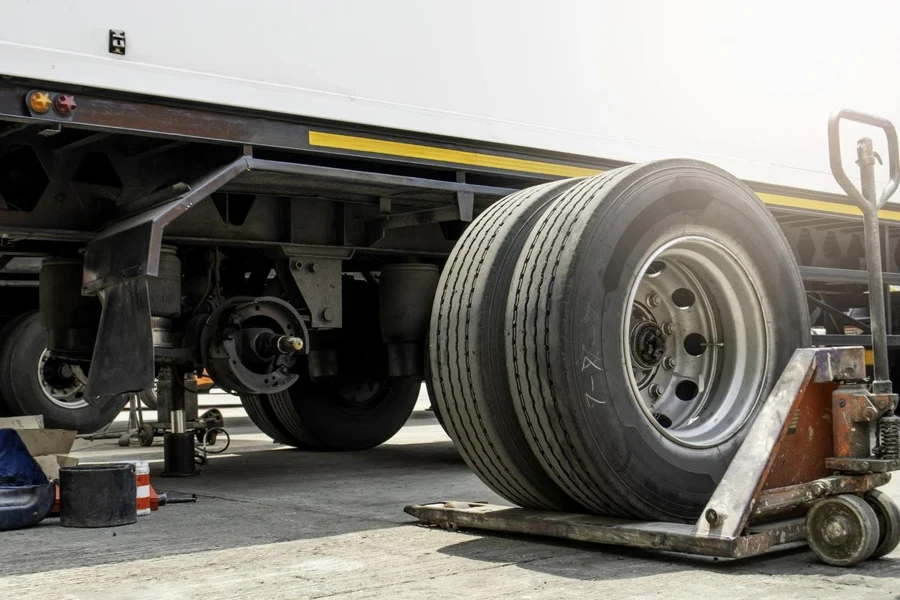
Kenda
Kenda has a reputation for making durable bias-ply trailer tires that perform well in off-road and agricultural environments. These tires are crafted to tackle rugged terrains and carry heavy loads effectively. Ideal for use in utility trailers, farm machinery, and other situations where resilience and resistance to punctures are vital. With a focus on offering traction and stability across surfaces, Kenda tires deliver reliable performance in challenging conditions. Their sturdy construction and ability to tackle tough environments make them a popular choice for individuals seeking performance in harsh terrains.
Freestar
Freestar specializes in providing tires that deliver good performance across a variety of uses. Their tires are popular for striking a balance between longevity and cost-effectiveness, making them an attractive option for budget-conscious shoppers in need of dependable tires for towing purposes. The Freestar tires excel, especially when used with utility trailers and camping vehicles, providing grip and stability whether driving distances or navigating local roads. This particular brand is great for individuals seeking a reliable tire at an affordable cost while delivering a balanced combination of performance and value.
Conclusion
Selecting the ideal trailer tires for the year 2025 requires knowing about the different kinds available and considering specific requirements and current market trends in this sector. Various tire options like radial and bias ply come with their own advantages and are suitable for different surfaces and loads. Current market tendencies emphasize the increasing desire for strong and high-performing tires due to technological progress and a move toward sustainability. Essential aspects such as weight capacity resilience and suitability to different climates are key in guaranteeing safety and effectiveness. Different brands, such as Maxxis and Goodyear, offer benefits that suit requirements ranging from heavy-duty tasks to more affordable alternatives in the trailer industry. Making informed decisions by considering these factors is crucial to enhancing safety measures, operational efficiency, and overall cost-effectiveness in trailer operations.




